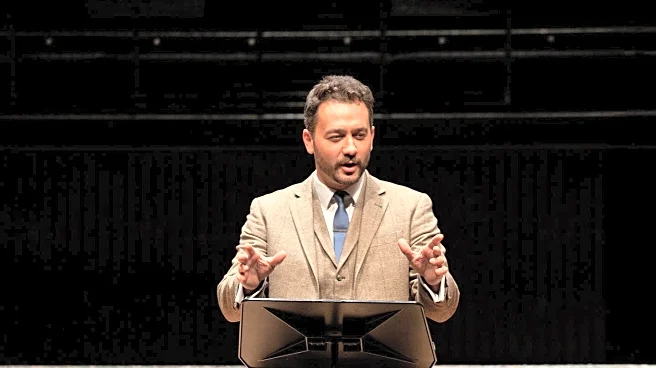What's Happening?
An increasing number of U.S. households are choosing electricity as their primary heating source, according to the U.S. Census Bureau’s American Community Survey. In 2024, 42% of households reported using electricity for space heating, while natural gas remained the most common heating fuel at 47%, though this represents a decline from 49% in 2010. This shift is influenced by changes in population distribution, technological advancements, and policy decisions. The Residential Energy Consumption Survey (RECS) highlights that homes in warmer climates are more likely to use electricity for heating, whereas colder regions still rely on propane, heating oil, and wood. Technological improvements, particularly in electric air-source heat pumps, have facilitated this transition, especially in colder climates. Additionally, some state and local governments have banned natural gas in new residential constructions due to indoor air quality concerns, although these policies face legal challenges.
Why It's Important?
The shift towards electricity for residential heating has significant implications for energy consumption patterns and environmental policy. As more households opt for electric heating, there is a potential reduction in greenhouse gas emissions associated with natural gas combustion. This transition also reflects broader trends in energy efficiency and technological adoption, with electric heat pumps offering a cleaner alternative. The change impacts utility companies, energy policy makers, and consumers, as it may lead to increased electricity demand and influence future infrastructure investments. Additionally, the legal challenges to bans on natural gas highlight ongoing debates about energy policy and environmental health, affecting stakeholders from government agencies to construction firms.
What's Next?
Future developments may include further technological advancements in electric heating systems, potentially increasing their efficiency and adoption rate. Legal outcomes regarding bans on natural gas could shape future residential construction policies. Energy providers might need to adjust their strategies to accommodate changing demand patterns, possibly investing in renewable energy sources to meet increased electricity needs. Policymakers may continue to explore incentives for adopting cleaner heating technologies, while consumers could face decisions about upgrading their heating systems in response to evolving regulations and market trends.
Beyond the Headlines
The transition to electric heating raises questions about energy equity and access, as households in colder climates may face higher costs if electric heating is less efficient. The legal challenges to natural gas bans also underscore the tension between environmental goals and economic interests, with potential implications for air quality and public health. Long-term, this shift could contribute to broader efforts to decarbonize the energy sector, aligning with national and global climate targets.









